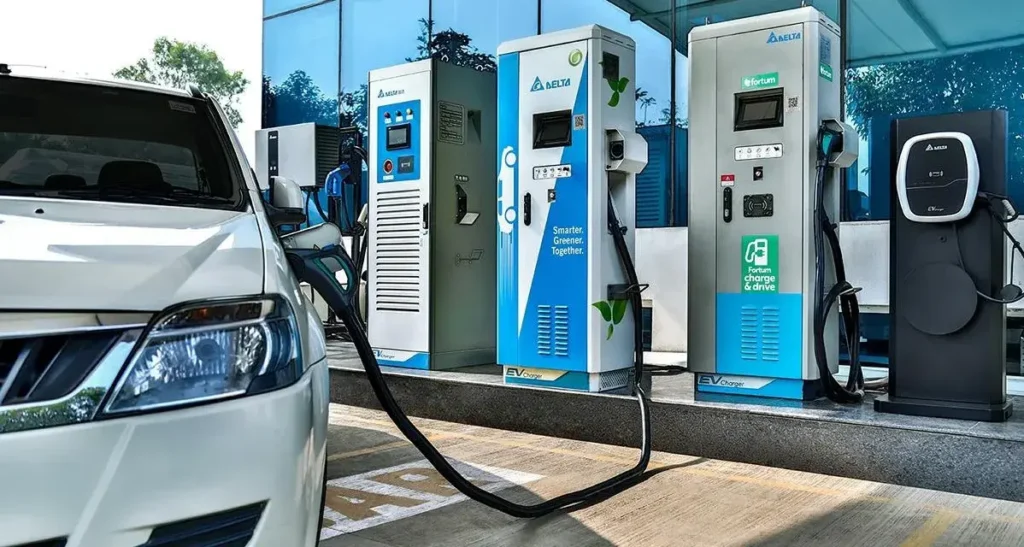ArdorComm Media News Network
September 15, 2025
Tata Power on Tuesday launched Mumbai’s first premium MegaCharger hub near the airport, adding to its growing network of over 1,000 charging points in the city. Built in partnership with Tata Passenger Electric Mobility, the hub is equipped with eight high-speed DC chargers and 16 bays, aimed at reducing wait times for private EV owners and fleet operators.
But as India’s charging infrastructure expands rapidly, a looming skill shortage threatens to slow the pace of adoption. A joint whitepaper by The Energy and Resources Institute (TERI) and Mercedes-Benz Research and Development India (MBRDI) estimates that the country will require between 1–2 lakh trained professionals by 2030 to operate and maintain charging stations.
The report underlined the vital role of Charge Point Operators (CPOs) in India’s EV transition while pointing out key challenges—limited hands-on training, lack of standardised modules, and a shortage of qualified trainers who understand both technical and operational needs.
India’s public charging points have already surged from just 25 in 2015 to nearly 30,000 by August 2025. However, to achieve the government’s 1:40 charger-to-EV ratio, the country must install nearly 4 lakh chargers annually through this decade. Experts argue that this scale-up will be impossible without simultaneously building human capital.
Anshuman Divyanshu, CEO of Exicom’s EV Supply Equipment division, said the skill demand today goes beyond basic electrical expertise and now spans high-voltage systems, connectivity, and software. “Fast, reliable charging infrastructure is the cornerstone of India’s EV journey. But success will depend as much on skilled manpower as on the megawatts of hardware deployed,” he said.
He stressed that Exicom has invested in structured training, noting that talent readiness is lagging behind infrastructure rollout. Similarly, Akshay Shekhar, CEO of Kazam, highlighted the uneven picture outside metros. While finding electricians through ITIs is not difficult, specialised EV training remains scarce. “Tasks like earthing are often skipped, SOPs aren’t followed consistently, and technicians in smaller cities lack exposure to proper standards and tools,” he said.
Even so, Shekhar pointed to a strong willingness to learn. Kazam has already trained over 500 technicians in tier-2 and tier-3 cities, many of whom are now actively supporting the sector. “With the right certification and structured skilling, this workforce can truly become the backbone of India’s EV expansion,” he added.
The TERI-MBRDI study also cautioned that most Industrial Training Institutes (ITIs) still do not offer EV-specific courses, leaving CPOs dependent on in-house training. It flagged gaps in diagnostics, digital integration, and safety standards as possible barriers to sustaining infrastructure growth.
By 2030, India’s EV ecosystem is projected to generate 1 crore direct jobs and 5 crore indirect jobs, but experts warn that under-skilled manpower could become a bigger bottleneck than under-investment in infrastructure.
Kunal Khattar, founding partner of AdvantEdge, suggested that the staggered rollout of charging stations will give time to build manpower capacity. He added that technology will likely lower operational costs by enabling unmanned facilities, while petrol pumps could play a significant role in scaling up. “They already have manpower on site and can add charge points as demand rises, without additional staffing costs,” he said.
Source: Economic Times


